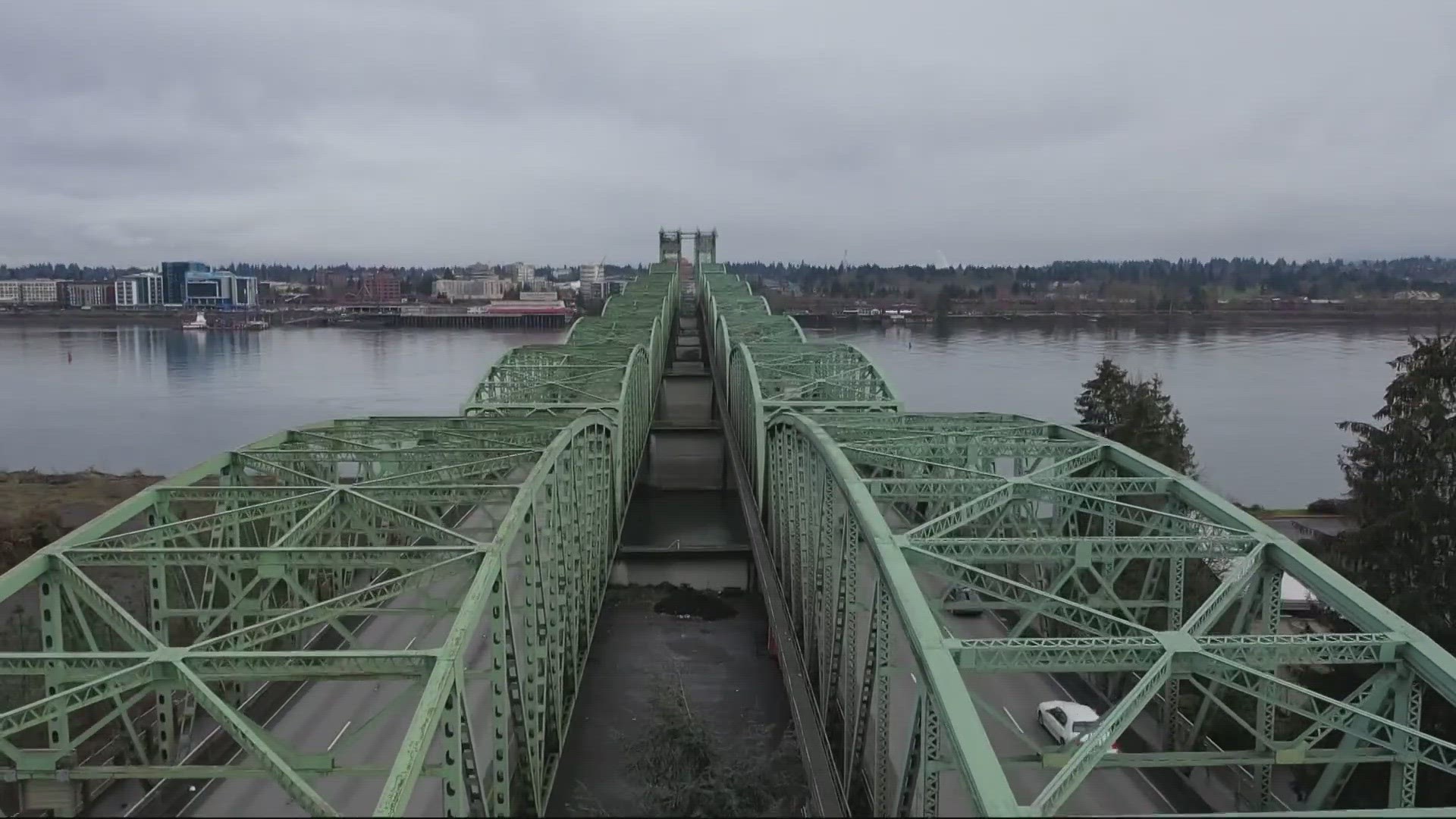PORTLAND, Oregon — On its face, Oregon House Bill 2098 isn't particularly eye-catching — all it does is call for a study of uniform standards for speed bumps. It's not the kind of bill that would be expected to result in hours of impassioned public testimony, but that's exactly what happened Thursday night.
The attention wasn't focused on HB 2098 itself, but rather a series of proposed amendments to the bill that tackle a much bigger topic: How to fund Oregon's share of the $6 billion cost of replacing the Interstate 5 Bridge.
For two and a half hours, community members and public officials took turns weighing in on the funding plan at a hearing before the Joint Committee on Transportation in Salem.
Under the first proposed version of the plan, outlined in Amendment 2, the state would commit $1 billion financed through bonds, matching $1 billion that Washington State pledged last year, with the remainder of the project paid for by federal grants and tolls.
Supporters at the hearing praised the focus on leveraging federal funding to pay for the new span.
"We need this project, we need this bridge, it needs to be replaced now," said Gwenn Baldwin of Beaverton. "We have a window for federal money that is not going to come back again."
Many emphasized the critical need to replace the Interstate Bridge, citing the advanced age of the current twin spans and the improvements that a modern replacement would provide for transportation commerce.
"With severe congestion during peak travel hours, the bridge is no longer serving those travelers efficiently or safely," said Curtis Robinhold, executive director of the Port of Portland. "Further, the 106-year-old bridge is at risk of catastrophic failure in the event of an earthquake."
Amendment 2 also includes a provision a provision capping the total cost of the project at $6.3 billion, an effort to try to avoid getting the state caught in a financial bind if the project costs escalate.
Critics of the plan suggested that even with the cap, the $6.3 billion limit and a lack of included enforcement mechanisms still felt like handing the Oregon Department of Transportation a blank check.
"We need a bridge that is climate forward," said Nikisha Nathan with the local organization Just Crossing Alliance. "We need it to leave money for vital transportation improvements throughout the state."
An alternative proposal introduced more recently, Amendment 3, maintains the $1 billion funding plan and the $6.3 billion overall cap, but it adds a stipulation that initial construction work can only involve the new bridge itself and the two freeway interchanges closest to it.
The project plan includes upgrades to seven interchanges along a four-mile stretch of I-5 around the bridge, which together could account for anywhere from a third to nearly half the cost of the overall project.
Amendment 3 states that construction on five of those interchanges can't begin until the main bridge and transit components are complete and both states certify that the remaining peripheral parts can still be built without exceeding the $6.3 billion cap. Many community members expressed support for that option.
"I'm asking you as a father, as a teacher and as a business owner to shrink this project," said Garron Lamoreau of Silverton. "Please tell ODOT to live within their means and pay for this project using some of the billions of dollars they manage every biennium."
Another big sticking point for critics of the Amendment 2 plan is that it includes language about the Rose Quarter expansion, declaring that the legislature will fully fund that project in the next two legislative sessions.
Many local critics have opposed widening that section of the freeway for environmental reasons, and they objected to the language lumping that project in with the I-5 bridge replacement. The Amendment 3 version of the plan ditches that language.
"An approach that connects our community," said Rev. Cecil Prescod with Ecumenical Ministries of Oregon. "Without endangering the general fund or the climate."

